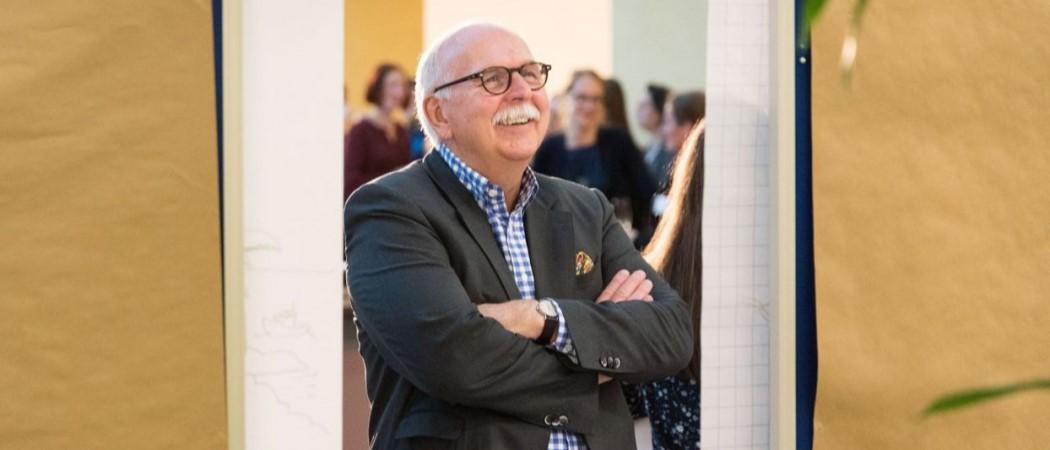The exclusion of Swiss and British researchers from Horizon Europe undermines a long-standing ethos

Matthias Kleiner, President of the Leibniz Association. Photo: Leibniz Association
Four years ago, Matthias Kleiner was enthusiastic about the potential for EU research programmes to engage leading scientists worldwide. “I am intensively involved with Japanese science organisations, and I thought that Japan should also be an associate member of the European Framework programmes,” he recalls. "This would really be a step forward for excellence in science.”
Kleiner’s confidence was based on long experience of the European research system, first as president of the German Research Foundation (DFG), then as president of the Leibniz Association, which connects 97 independent research institutions throughout Germany. In 2018, the focus was still on expanding the EU’s scientific collaboration with third countries, rather than rolling it back. “I couldn’t imagine, at the time, that these things would be called into question as they are now,” Kleiner says.
For him and many other European scientists, the recent exclusion of the UK and Switzerland from the EU programmes, for political reasons, seems at odds with the fundamental rationale for scientific collaboration within Europe. “Science is sometimes about competition, but for the most part it relies on cooperation, especially if you are addressing challenges that go beyond the capacity of single researcher, research group or research nation,” Kleiner explains. “So, we urgently need more cooperation in Europe.”
As head of the DFG, Kleiner was closely involved in the launch of the European Research Council (ERC), with its focus on excellence in curiosity driven research. “If I look back at my time as DFG president, this was such an important link to British and Swiss scientists and science organisations,” he says. “Science should have all possible options for a free flow of knowledge, data, people and ideas, and the Framework programmes and especially the ERC are so important for that.”
Will scientists be forced to relocate?
If new association agreements are not signed, recent ERC grant recipients in the UK and Switzerland may be willing to relocate to the EU or to lose their ERC label and get funded by the national British and Swiss guarantee funds. “We in the EU could take advantage of having the ERC to bring these excellent Swiss and British scientists to France or to Germany, but this is not how scientists think,” notes Kleiner. “We first of all want our colleagues to be in their countries, working in collaboration with us.”
The current impasse on the association agreements risks undermining a long-running effort to lower the barriers imposed by national borders within Europe. Kleiner recalls how the Swiss National Science Foundation (SNSF) worked together with fellow research councils in Germany and Austria to improve collaboration across Europe’s borders. This was achieved through an agreement that shared the assessment of projects involving researchers from two or more of the countries.
“It was an attempt to tear down the walls between national funding institutions,” Kleiner recalls. “It said that if one funding organisation peer reviewing a project decided that it was excellent enough, based on strict quality control mechanisms, then the others would trust this evaluation and fund their researchers to participate in the project.”
This pioneering initiative took place under Eurohorcs, a forum that brought together the heads of European research councils. “Switzerland played a very important role in Eurohorcs, through Dieter Imboden,” Kleiner says. Imboden was president of SNSF, and chair of Eurohorcs from 2009 to 2011. He went on to become the founding president of Science Europe, the successor to Eurohorcs. “So, it is unimaginable that Switzerland and Swiss scientists are no longer at the same table on the European stage.”
Kleiner is equally dismayed at the exclusion of the United Kingdom. “If you see the success of British scientists and research institutions within the Framework programmes and Horizon 2020, they play an essential role in European science and research.”
And while the present situation is discouraging, he is optimistic that broad scientific cooperation in Europe will survive. “It is such a strong force and a strong need. And the lesson we learn from history is that science and scientists have overcome many obstacles in the past.”





 A unique international forum for public research organisations and companies to connect their external engagement with strategic interests around their R&D system.
A unique international forum for public research organisations and companies to connect their external engagement with strategic interests around their R&D system.